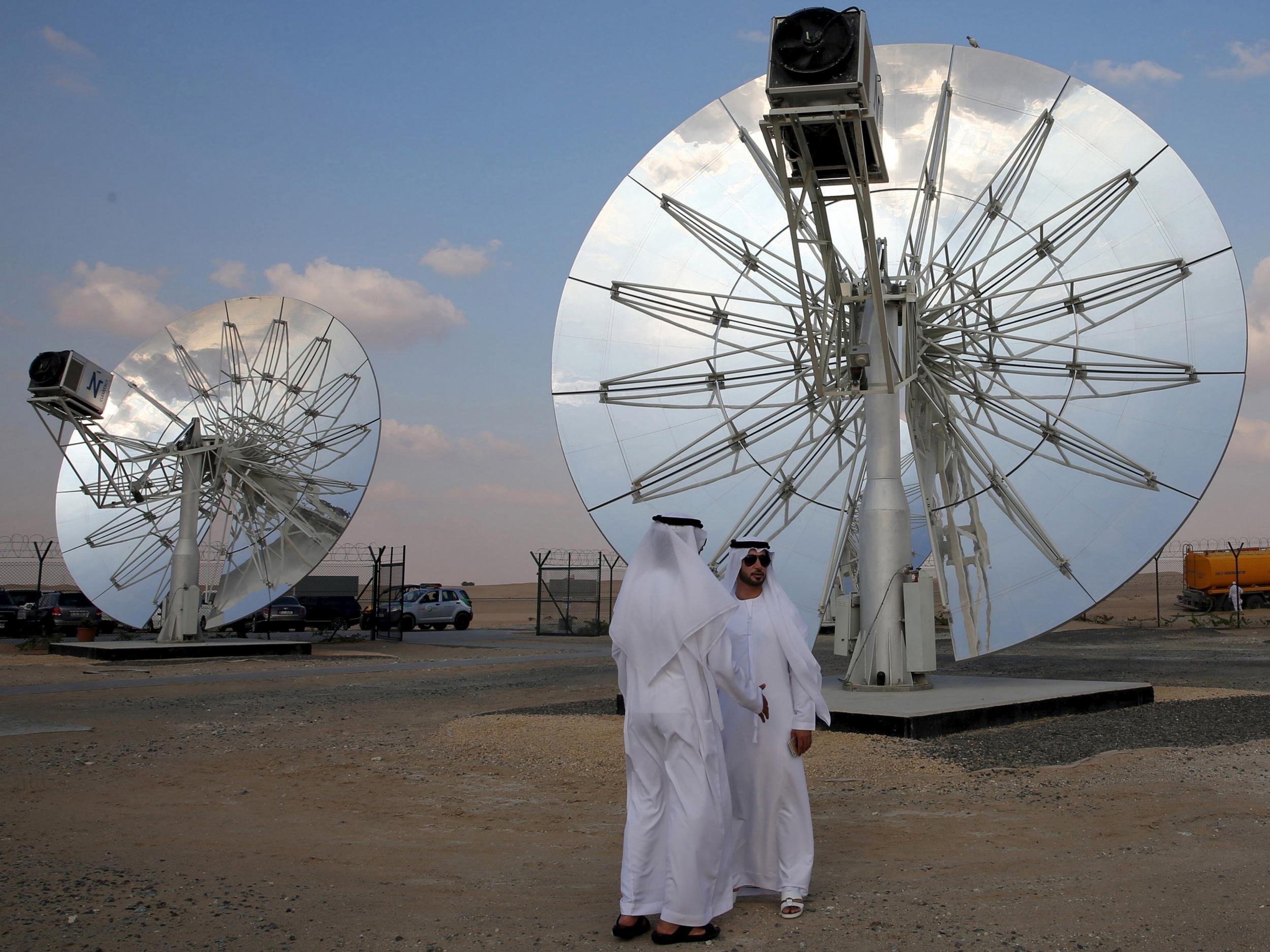UAE sees huge savings in switch to green energy from natural gas reserves
Gulf state saves $192bn by making transition to clean technology and plans to invest $150bn in renewables by 2050

Your support helps us to tell the story
From reproductive rights to climate change to Big Tech, The Independent is on the ground when the story is developing. Whether it's investigating the financials of Elon Musk's pro-Trump PAC or producing our latest documentary, 'The A Word', which shines a light on the American women fighting for reproductive rights, we know how important it is to parse out the facts from the messaging.
At such a critical moment in US history, we need reporters on the ground. Your donation allows us to keep sending journalists to speak to both sides of the story.
The Independent is trusted by Americans across the entire political spectrum. And unlike many other quality news outlets, we choose not to lock Americans out of our reporting and analysis with paywalls. We believe quality journalism should be available to everyone, paid for by those who can afford it.
Your support makes all the difference.The United Arab Emirates forecasts that savings generated by switching half its power needs to clean energy by mid-century will outstrip the investment costs.
The Gulf state plans to invest £119bn ($150bn) in renewable power to 2050, weaning the country from dependency on subsidised natural gas power in stages, Minister of Energy Suhail Al-Mazrouei said at a conference in Berlin. Clean energy sources will help it save £153bn ($192bn), he said.
The UAE leadership is “bullish” about achieving the goal after realising that the nation can forgo subsidies in the switch to clean power from liquid natural gas (LNG), Al-Mazrouei said. Sticking to the strategy will “save the environment and at the same time save us lots of money,” he said.
As the costs for solar power fall rapidly, Gulf and Middle East states are reevaluating their power strategies, which currently rely subsidiaries for electricity generated with LNG. The UAE has set an “incredibly ambitious” clean power target, starting from scratch just a few years ago, according to Bloomberg New Energy Finance.
In September, Chinese panel maker JinkoSolar and Japanese developer Marubeni won a tender for a solar plant in Abu Dhabi with a record bid of 2.42 US cents a kilowatt-hour. About £795 million ($1bn) has been invested in utility-scale solar in the UAE since 2007.
Middle East states need to break their reliance on subsidised gas power, where inefficiencies are endemic in the Middle East, Al-Mazrouei said.
“We have so many open-cycle power plants it doesn’t make sense to continue with them - they’ve very low efficiency,” said the former Abu Dhabi Investment Authority executive. “The reason they are there is because gas is subsidised.”
In future, the UAE will review every proposed LNG power project as a project that’s not subsidised, he said. The government also wants to drop support for power tariffs, he said.
“Many low hanging fruits” exist as potential savings in gas-powered generation, transmission and demand-side management, the minister said.
Bloomberg
Join our commenting forum
Join thought-provoking conversations, follow other Independent readers and see their replies
Comments